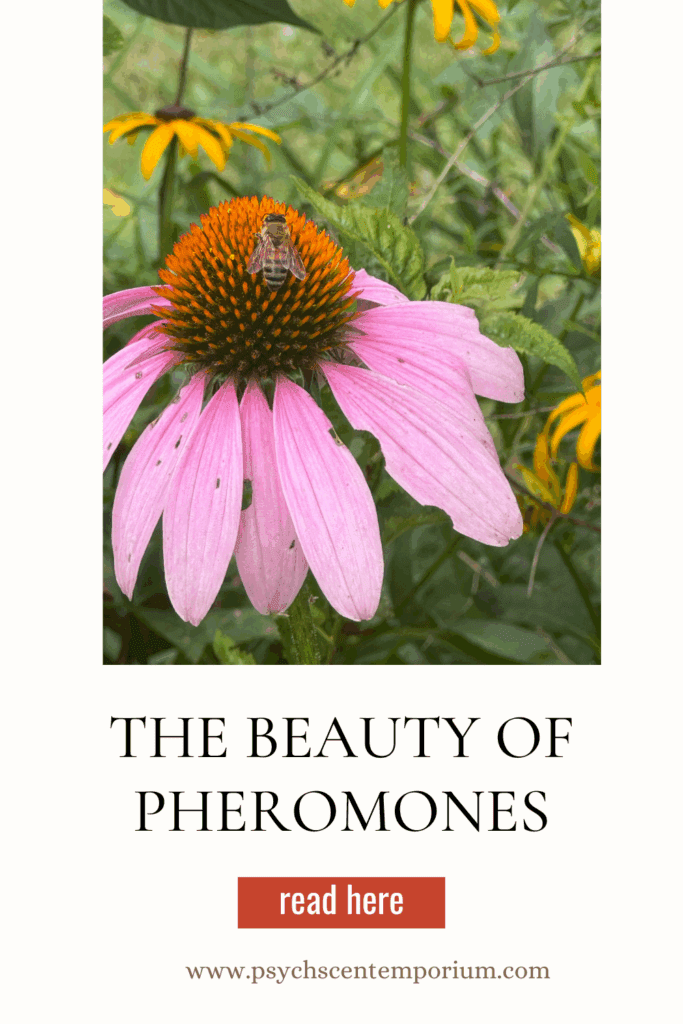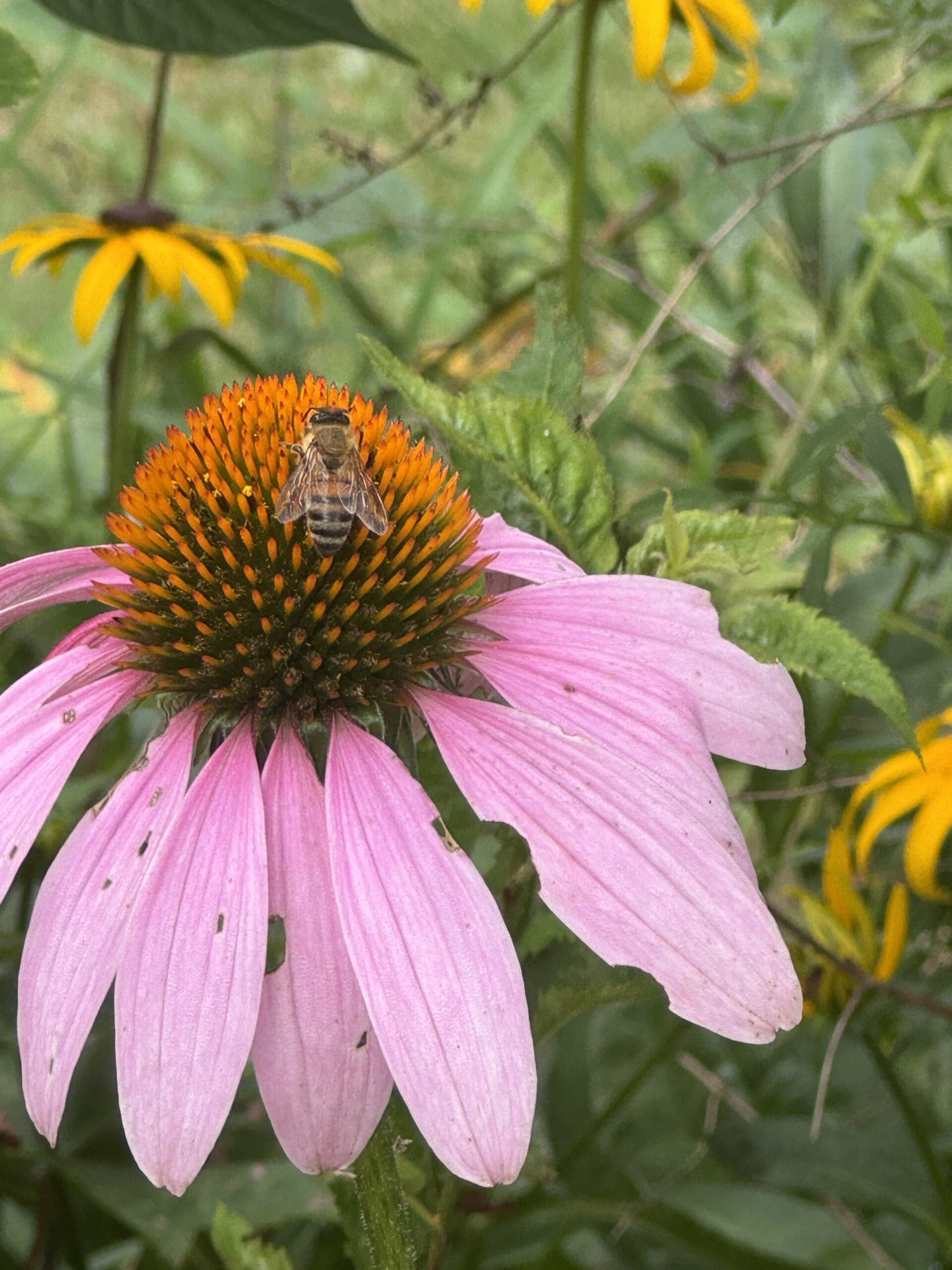Pheromones are the silent messengers of human connection.
Though invisible, they weave a profound story of attraction, memory, and mood—an olfactory whisper that bypasses conscious thought and goes straight to the heart of human experience. I’ve always been drawn to this aspect of science behind human nature, and celebrate this powerful, yet mysterious element of scent, where psychology and aroma blend into a language as ancient as life itself.

Now, I do have to mention that pheromones, when it comes to humans, is still highly controversial.
The initial studies of pheromones came from scientists studying insects in the 1930s calling the hormones that insects released “ectohormone.” However, by the 1950s, scientists realized that all animals release this substance, and in turn, called it “pheromones,” labeling it with additional attributes to attracting mates and recognizing each other. You can read more about it here.
When regarding humans, scientists have yet to define the terms for our pheromone production and processes. For instance, we humans, as mammals have the vomeronasal organ (VNO) and the main olfactory epithelium (MOE) to detect signals. While we do have VNO organs, there is not much science behind it. That being said, pheromones are ever present in our lives: babies recognize their mothers through pheromones is a prominent example.
Moving on..
So, what Are Pheromones?
Pheromones are chemical signals naturally released by the body, subtly influencing how we feel, behave, and respond to one another. Unlike perfumes or essential oils, which we consciously choose, pheromones operate beneath awareness, speaking directly to the limbic system—the brain’s emotional and memory center. They shape first impressions, fuel attraction, and even anchor relationships to moments in time.
(Side note: back to the topic of perfumes and essential oils: I feel it needs to be expressed that each person’s skin pH levels, skin types, body temperatures, hormone levels, diets, medications, and environmental conditions will determine a different result even if using the same perfume. Meaning, you and your friend could use the same perfume and the perfume will not same the same entirely.)
Pheromones and Memory Encoding
Just as I mentioned in my previous blogs that a familiar fragrance can transport us back to a cherished moment, pheromones, too, act as anchors for memory. Imagine walking into a room and instantly recalling the presence of someone you loved; not just because of their cologne (though, that could be the case, as well), but because of their natural chemical essence. This is the profound link between pheromones, memory encoding, and emotional imprinting.
Naturally, with Psych-Scent Emporium, this is prevalent in the work I do: how scent and memory entwine, creating scent anchors that can be intentionally cultivated through signature perfumes, aromatherapy, and mindful scent experiences.
The Psychology of Attraction
From a psychological perspective, and the one that peaks my interest, pheromones remind us that attraction is more than visual or verbal—it is profoundly olfactory. Just as I wrote in my previous blog (reference link here) about how the brain processes scent, the same process is true for pheromones. They, too, bypass the thalamus and travel straight to the amygdala, stirring feelings of comfort, curiosity, desire, or even caution. They create an emotional landscape that guides our connections with others.
This is why scent marketing, signature fragrances, and intentional aroma rituals are so powerful: they align with how the brain is wired in order to form trust, intimacy, and belonging.
Pheromones in Everyday Life
While much of my focus and attention are given to the oils and perfumes I create, I can still equally appreciate the natural beauty of pheromones, and how they lie in their subtlety. They are the unspoken resonance behind a lingering glance, the invisible bond that makes a handshake feel familiar, or the comfort of being near someone who feels like “home.”
Celebrating the Invisible
Pheromones remind us that beauty often resides in the unseen. They teach us that connection is chemical as much as emotional, and that scent—whether natural or crafted—can become a lifelong anchor of memory and meaning.
Naturally, I invite you to explore how the mystery of pheromones and the artistry of scent can transform your story into something unforgettable.
